
How we care for body, mind and spirit
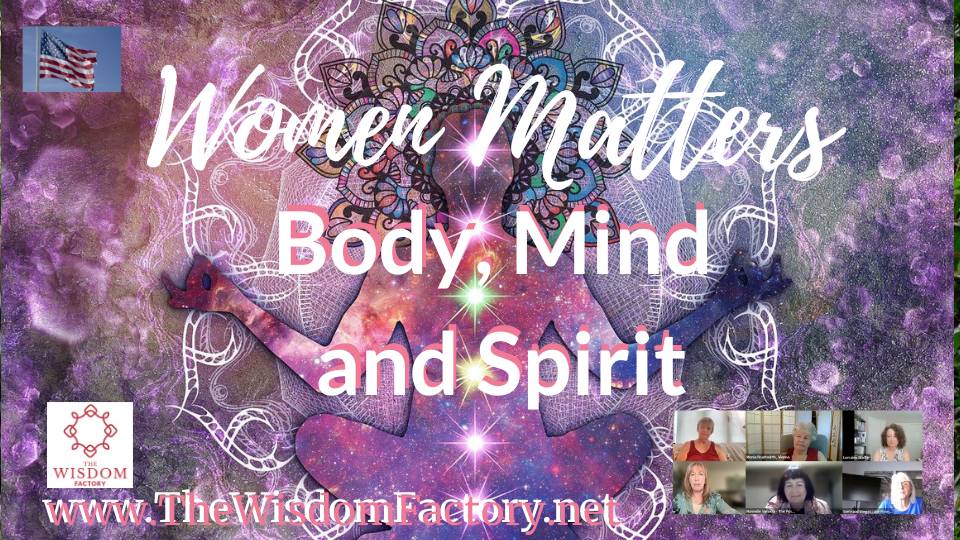
Heidi writes
What is our situation right now? How is our body like, our mind and how do we live our spirituality?
Well, in a certain age everyone can name some aspects of the body which remind us of our age, also of our mortality and the need of coming to terms with it. This is the task of the mind which, more often than not, wants to be young and dynamic as ever and it will never allow us letting go of what we think needs to be continued. Shall I continue to study, to read and gain more knowledge, to do more courses of self development or whatever.
Spirituality says: let go, enter into BEING. The later years in life certainly facilitate this endeavour, but are we good in just Being? Do we value it? Or do we still want to build up structures in the „real world“.
These are some of the questions we touched in the first meeting in September 2025. If you resonate with this kind of topics, feel free to listen and leave your comments!
The conversations took place in September, 2025
### Summary
The video transcript captures a reflective and intimate conversation among a group of women located across different parts of the world—Canada, the US (California and San Diego), Italy, and Austria. They gather to share personal updates and engage in a holistic discussion about health and well-being, focusing on the interconnected aspects of body, mind, soul, and spirit. The dialogue spans multiple themes, including physical health challenges and recovery, mental resilience, acceptance of mortality, mindfulness practices, and spiritual growth. The participants openly discuss their current life experiences, struggles, and insights, weaving in topics such as chronic pain management, emotional intelligence, the role of mind-body connection, and the pursuit of joy and acceptance in later stages of life. The conversation also touches on the psychological frameworks they employ, like Enneagram personalities and the Gene Keys, to better understand themselves and their life journeys. The tone is supportive, thoughtful, and candid, emphasizing personal growth, self-care, and the universal human experiences of aging, loss, and transformation.
### Highlights
– 🌕 A striking full moon and lunar eclipse night set a contemplative tone for the gathering.
– 💪 Physical health updates include exercise routines, injury recoveries, and chronic pain management.
– 🧠 Exploration of the mind-body connection, including recent therapeutic approaches to chronic pain like neuroplasticity and mindfulness.
– 🌿 Reflections on aging, mortality, and the importance of acceptance and presence in later life.
– 📚 Discussion of spiritual and psychological tools such as the Enneagram and Gene Keys to foster self-awareness and growth.
– 🌊 Nature and simple pleasures, like swimming and gardening, are highlighted as sources of relaxation and healing.
– 🤝 The group’s international and intergenerational connection offers mutual support and shared wisdom.
### Key Insights
– 🌕 **The Symbolism of the Lunar Cycle as a Metaphor for Life’s Phases:** The group’s conversation begins with reflections on a lunar eclipse and waxing moon, symbolizing cycles of change and renewal. This metaphor underscores their discussions about physical and mental health challenges and the ongoing evolution of self-awareness and healing.
– 💪 **Physical Health as an Ongoing Journey with Mindful Awareness:** Participants share detailed accounts of their physical conditions—ranging from pelvic strengthening exercises, plantar fasciitis, and the effects of medication, to surgery preparation. Their stories highlight the necessity of balancing activity with rest and careful body awareness, particularly as aging increases vulnerability to injuries.
– 🧠 **Neuroplasticity and Mindfulness as Emerging Therapeutic Frontiers:** A new therapeutic approach based on the concept of neuroplasticity—how the brain’s wiring affects chronic pain—is discussed. This reflects a broader trend in medicine and psychology recognizing the brain’s role in physical health and the potential for mental training and mindfulness to alleviate suffering, which is both hopeful and realistic given structural limitations like arthritis.
– 🌿 **Acceptance of Mortality and Embracing Presence:** Several participants grapple with the reality of aging, loss of loved ones, and their own mortality. This leads to deeper reflections on how to live meaningfully in the time one has left, emphasizing the importance of presence, reducing attachments to material possessions, and “Swedish death cleaning” as a metaphor for lightening life’s burdens.
– 📚 **Psychological Frameworks as Tools for Self-Understanding and Growth:** The use of the Enneagram personality system and the Gene Keys contemplative practice highlights how structured self-inquiry can help individuals manage mental patterns, reduce judgment, and cultivate joy. The dialogue about personality types and shadow versus gift aspects reveals a nuanced understanding of internal mental dynamics and growth trajectories.
– 🌊 **Nature and Simple Activities as Healing Modalities:** Activities like swimming under moonlight, gardening, and boating are valued not only for physical health but also as ways to calm the mind and nurture the spirit. This affirms the holistic view that well-being involves engagement with natural rhythms and environments.
– 🤝 **Community and Connection as Vital Supports:** Despite geographic distances and individual struggles, the group provides a space for empathy, shared knowledge, and encouragement. The candid exchanges about loneliness, mental health, and physical pain underscore how social connection and dialogue are critical components of holistic wellness.
### Expanded Analysis
The transcript reveals an insightful and multi-layered dialogue about aging and well-being, underscoring the interplay between physical health, mental resilience, and spiritual development. The women’s diverse experiences emphasize that health is not merely the absence of illness but a dynamic process involving acceptance, adaptation, and growth.
The body discussions reveal the physical realities of aging, including vulnerabilities like falls, chronic pain, and the effects of medication. Still, there is a strong emphasis on agency—participants actively engage in exercise, swimming, and gardening, demonstrating resilience and care for their bodies. The mention of a new therapy focusing on neuroplasticity reflects a cutting-edge understanding of chronic pain as not only a biological but also a neurological phenomenon, suggesting that mental retraining can complement traditional medical approaches.
The mind section is rich with reflections on the challenges of mental hygiene and mindfulness, particularly the difficulty many face in quieting a rapid or judgmental mind. The Enneagram discussion adds depth by linking personality types to habitual mental patterns and potential for growth, illustrating how psychological tools can provide a map for transformation. The Gene Keys practice, which integrates contemplative self-study with spiritual insight, offers another layer, signifying the participants’ commitment to lifelong learning and self-awareness.
Spiritually, the group confronts existential themes of mortality and legacy with honesty and courage. The acceptance of death is not portrayed as morbid but as a pathway to liberation—“lightening the load” to live more fully. The concept of “Swedish death cleaning” as a metaphor for emotional and material decluttering aligns with contemporary movements around minimalism and intentional living.
The group’s shared experience also highlights the importance of community in holistic health. The presence of friends across continents, the mutual support during difficult times, and the sharing of resources (like book recommendations and therapeutic insights) reinforce that well-being is deeply influenced by social connections.
In summary, this conversation exemplifies a holistic approach to aging and health that integrates body, mind, and spirit. It advocates for mindful presence, psychological insight, physical care, and spiritual acceptance as interdependent pillars of a well-lived life. The dialogue also reflects broader cultural shifts toward embracing aging not as decline but as an opportunity for deep growth and meaningful connection.
### Conclusion
This rich and heartfelt discussion among internationally dispersed women illuminates the complex, intertwined nature of health and well-being in later life. They candidly share physical challenges, mental struggles, and spiritual quests, supported by psychological frameworks and therapeutic innovations. Their reflections encourage a compassionate, mindful, and proactive approach to aging—one that honors the body’s needs, cultivates mental clarity, embraces mortality, and seeks joy and connection. This conversation serves as an inspiring model for holistic wellness and lifelong personal evolution.
00:00:00 – 00:01:55
Huh? The women’s stuff is coming up again in four, but it’s a different four than last time, and then again in September 2025. Oh, and Victoria’s here too. We’ll see what we’re chatting about today, and as usual, a quick weather update from Vienna. First off, the weather’s great—really nice September days. Last night was kinda weird with the lunar eclipse, and I barely slept. So if I nod off, don’t be surprised. Yeah, what topic grabs my attention?
00:01:01 – 00:02:30
Maybe we could just talk about how we’ve been feeling physically, mentally, emotionally, and spiritually over the past couple of weeks. That’s my suggestion, but I’m open to whatever comes up. Okay, and Dina, good morning. We’ve got this heather-gray cloud hanging over the sky, and it’s pretty misty over the water. That kind of happens around this time of year. But the cool thing is, the grayness actually makes the flowers and some of the colors stand out more.
00:01:45 – 00:02:53
Bright skies mean dull weather, but prettier flowers. Yeah, it’s been an interesting summer here. We’ve had some weird weather, but that’s nothing unusual. It’s been busy. I finally finished school, so the best moment was finishing my last class. When someone asked me last Friday what the happiest day of my summer was, it was definitely getting my final grades and knowing I’m done. Yay! Now, I’m working on my research proposal, just making a few tweaks.
00:02:20 – 00:03:33
Thanks, Victoria. I’m just making a few tweaks, then we’ll send it off to ethics. Otherwise, I’m feeling pretty good, though a bit mortal lately watching some friends pass away. But yeah, overall, I’m doing well. Thanks again, Victoria. Just to add, Reena’s in Canada, Victoria’s in California, Mona’s in Vienna, and I’m in Italy. So yeah, we’re all over the world—totally international.
00:02:58 – 00:04:19
Yeah, so, not much to report except I’ve been really enjoying the full moon—or actually, the waxing moon. It’s been super hot here, so I’ve been swimming at night under the moonlight, which is awesome. The moonlight makes this long strip of light across my pool, and it’s a great way to cool down and relax after a long day. I also get up at 6 a.m. to swim.
00:03:37 – 00:04:33
Before the sun hits the pool, I have to wait all day feeling super frustrated because I’m not supposed to be in the sun. I’m on blood pressure meds that make me burn like crazy—in just five minutes, I turn bright red like a lobster. It’s annoying, but on the bright side, it gives me something to look forward to in the evening. Plus, it helps me get up early in the morning, which I usually wouldn’t do because I’d be too down to even want to get out of bed. But knowing I have that to look forward to helps.
00:04:06 – 00:05:11
00:04:37 – 00:05:52
we had a heavy rain about a week ago. So it’s still quite but you can’t imagine. I finally have to take a photograph. I have one plant of long zucchinis about like this. one plant that has already given about zucchinis like that about 60 and there are others there I think at the end I arrive at about 100 one plant imagine that it’s it’s it has a lot of of manure oh Christine is coming that’s good a lot of lot of manure and it can eat a lot but still I’ve never seen one plant to do all that good Christine that
00:05:15 – 00:06:41
you made it to come wonderful as for the topic body, mind, spirit, soul or whatever it for me it’s fine in the in the last let’s say during summer we could say no so Christine we all have checked in will you do your check in sure um Christine in Carlsbad California um I’m getting ready for a trip to the east coast I’m looking forward to it about about two and a half weeks I’m going going to do kind of a whirlwind. Uh the purpose is I’m going to a high school reunion uh in New Jersey and I I think I
00:05:59 – 00:07:08
mentioned this last time cuz Mona was asking me about where in New Jersey I remember this now. So I’m leaving on Saturday and uh yeah, looking forward to it. It’s nice to be back on the East Coast during the fall. I don’t think we’ll have foliage uh in September. There won’t be foliage yet, but um it’ll be nice. It’ll be nice to see friends and family. And other than that, uh, things are going pretty good. Um, can’t think of anything in particular. Politics is terrible, but that’s nothing
00:06:33 – 00:08:00
to talk about. Uh, yeah, I’m I’m I’m doing well. So, yes. What’s our topic today? Yeah. So, Mona, you suggest what you wanted. I think I didn’t hear another topic except that there is some body uh things and some mind things. Uh Gina positive mind thing uh Victoria body uh so we could we could talk about these things but first I do a little check in um oh no I did ah before you came so it’s fine we just go into the into the topic. Mona, would you like to expand and start?
00:07:16 – 00:08:59
Okay. I’m wondering, should we do first the body, everybody, and then the mental and then uh Yeah. So, we could compare. Well, my body I’m going I have been going to the fitness center now for five weeks and um I still don’t notice much of a change but uh the only thing I really noticed that when you uh there’s one instrument you sit on it and you press your pelvic and there I really succeeded in two uh two more levels. So, uh I’m very proud of myself. Okay. Um otherwise, I noticed that I’m
00:08:07 – 00:09:24
very careful how I walk about because a friend of mine, she slipped on the steps of of the pharmacy and broke her pelvic bone. So, it’s really she has to be in the hospital now. It’s it’s just terrible. and she’s about two years younger than I am and that’s really depressing. Yeah. So, I give on to whoever wants. Gina, you are next to me on the screen. Um, well, I would say it it’s been a quiet time in that um I’ve expected my August to be quite different in terms of
00:08:46 – 00:10:02
my activity level and we haven’t had the activity level that I would expect. um in part because I was doing revisions on my proposal. Um so I was tying myself once again to the desk instead of getting up. But um so I sort of feel like it’s an arresting mode. Um both my husband and I think we’re just recovering from COVID. So that’s slowed us down uh a fair bit this week. But there’s this sort of coming to terms with um trying to get to the point of relaxation again and releasing tension and um
00:09:24 – 00:10:36
hoping that soon I will be able to do that in in in the outdoors because I’m not spending the amount of time especially this time of year when it’s so beautiful. Um yeah, but just that just that caution, that little bit of caution and being aware and respecting the body and taking care of it. So yeah, it’s it’s kind of flaky, but that’s about all I got. I could continue. I’m quite fine. I’m always outside when it is possible and doing things in the garden. Not during the day because it’s
00:10:05 – 00:11:14
too warm. But in the morning 2 hours more or less and in the evening an hour or two hours depends. Still I noticed that my force which I had when I whole day when I worked in the on the ground uh has gone. It’s not I don’t have muscles anymore. And then when I use the machines then I get hurt in the shoulders you know because of this things like the the mowing machines and stuff. But I still like to do all that. So, and I can do it. It’s not that I can’t do it. But then afterwards, h
00:10:39 – 00:12:17
okay. And then I have um some problems with the stomach, but I have um realized that it depends also on nervous on on on psych psychological things going on. When I’m fine, then it’s fine. And as soon as I’m nervous or something like that, then I feel it. So I eat a lot of ha what is it in in in English? A sort of clay you use for inside uh to to absorb the acidity and this takes me along. I don’t take any pills. I take a lot of supplements but no medicine at all. And whenever I
00:11:28 – 00:12:47
go to a to a doctor which is very rare and he might not know me and he says what medicines do you take? None. Because in our age normally people have 10 or more medicines. So I’m glad about that that I don’t need it. And about the awareness of not falling. I had a a guest here. He is here for 28 years. He’s coming. It’s a friend, you know, and he’s always sitting there with his computer, blah blah. And this summer, it rained. And so he came down and wanted to to to save the computer. And he fell
00:12:07 – 00:13:30
and broke three ribs. So it doesn’t depend on age. You know, you can fall all the time and do some uh things which you wouldn’t expect. But uh I’m very aware when going down the the steps and you know over the fields where are all these uh grasses with long uh how do you say when you can get um caught into into these things. So I’m very attentive and also about uh this level we have the wild pigs who are doing holes you know and so you need to be attentive not to to fall into these.
00:12:48 – 00:14:01
So that’s my alto together fine some little things let’s say that’s my report Victoria um let’s see we’re on the body um actually yeah I well I already talked about my swimming so I won’t repeat that it’s not that interesting anyway but um but I do this is a perfect opportunity um I have a very weird and wonderful and crazy doctor, new doctor. Um I I became immediately infatuated with her and now I think she’s kind of a quack. But anyway, she’s still beautiful and
00:13:28 – 00:14:34
fabulous. Um she assigned me as a prescription, literally. It was it was on my chart and I couldn’t make another appointment with her until I read it this book which is called Oh, I’m blurred, but I’ll I’ll write it in the chat. Um it’s called The Way Out and it’s by um a a licensed clinical social worker, Alan Gordon. Um anyway, it’s made a huge splash in the I don’t know if you’ve heard of it, Christine, because it’s um it’s seems it’s circulating widely in the um the kind of
00:14:02 – 00:15:08
the therapy world because he’s a therapist and not a neuroscientist and not a doctor. But he has been researching for decades uh chronic pain and has decided that the major course the major course the major source of chronic pain is um is neur neuroplastic. I think now I’ve already forgotten it. I did read the book but I read it really fast um because I wanted to see the doctor again. Um anyway, she’s following up with with uh therapy sessions. She just did a training in it. That’s how
00:14:35 – 00:15:49
seriously she’s taking it as a doctor. and um she sent a prescription for me to get training with someone who was trained in this. It’s a new kind of therapy. Um and uh and so I looked into it. She wrote wrote the prescription out and the w there’s only one woman in San Diego who does it and she charges $1,500 an hour. So my doctor was really smart. She did the training over the summer herself and now cuz she’s so gung-ho about she really believes in it. So she’s doing it as you you just have four consecutive
00:15:13 – 00:16:20
appointments with her which of course isn’t covered by insurance cuz she’s a regular doctor. And um anyway uh I I won’t go into a long thing because it would take hours. The the upshot is um when I first read the book, I was immediately convinced that that indeed all of my physical afflictions are neuroplastic and all I have to do is train my brain according to the therapeutic model that he established and then I’d be home free. Well, that was in my initial sort of honeymoon phase. Now I’m thinking there are some
00:15:46 – 00:16:43
structural things wrong with me like arthritis which um you know I can think positively till the cows come home and I’m still going to have arthritic pain but but there is a lot of I mean what I’ve experienced just subjectively is there is a lot of truth in it and a lot of it’s based on fear. Um and so so anyway it’s really interesting. I’ll I’ll write the the information in the chat if you want to look up the book. But um but it’s funny cuz I didn’t want to buy it cuz I have 11,000 books in my
00:16:15 – 00:17:19
garage and I don’t know what to do with them. So I get all my books out of the library and there were like 250 holds on this book. So it’s like a big deal. And um and then miraculously in the little county library here that the word hadn’t spread spread as quickly. It’s not a brand new book, but it’s relatively new. Anyway, um I don’t want to take up too much time, but but it’s been a really interesting um way of revisiting the body and what how how we relate to it. So, I’ll be quiet now and pass over to
00:16:47 – 00:18:00
Have we all done the body now? I think it’s back to Monia with the mind. Or are we still doing body? Oh, Christine’s body. Okay. I’m sorry. Over to your body, Christine. I’ve had two friends who recently fell downstairs. One wasn’t badly injured, but she’s in pain. The other one was hospitalized and had a head injury with it. So, yeah. Um, so falling is always a concern. Um, I exercise a lot, so I’m physically I’m pretty active, but I I have an appointment this week because I’ve had a
00:17:23 – 00:18:28
pain in my heel, and I’m suspecting maybe it’s a stress fracture. Um, I’ve had it for 3 weeks. I kind of waited and waited and waited. Didn’t want to have to go to the doctor. Uh cuz it seems somewhat minor. Um but after weeks of it not really getting better, I thought I better at least check it out. Um which is weird cuz I’m going to the doctor on Wednesday and I’m on a plane on Saturday. So I don’t know what much that uh is going to help me about that, but I guess it’s good to know what’s going on.
00:17:55 – 00:19:22
Um and then I’m going to have a surgery in January. I will have a a ovarian cyst um removed. And so I’m prepping for that surgery uh by getting some testing done and uh some preop appointments with the surgeon. So um it’s going to be laparoscopic. At least they’re not going to have to cut me open. That’s good. So um minimally invasive in that way. But uh I don’t like general anesthesia cuz I think it does hurt your brain. Um and the older you are, I think the more the more it affects us and our our
00:18:38 – 00:19:56
cognitive functioning. So that’s the part that troubles me the most is just the anesthesia. Um Sanjay Gupta, you probably know who he is, Victoria, the physician. He’s on CNN. Sanjay Gupta, he’s pretty famous. Um he just did a special on chronic pain and uh mindfulness and psychological I mean that is becoming um when I say recently it’s been around for a long time but for some reason there seems to be a resurgence of looking at psychological interventions for chronic pain. And yeah it’s all about how the
00:19:17 – 00:20:39
brain interprets the signals. I mean the brain does the interpreting. Um and it seems he breaks down how mindfulness can help with certain types of pain whether it’s more chronic pain or acute or where that what type of pain it is nerve versus muscle there’s different ways of looking at it but uh yeah that that seems to be a resurgence of people interested uh in this area which is great need needs a lot more work so um what else. Uh, yeah, I’m I’m doing okay. My heel that’s bothering me hasn’t really slowed
00:19:58 – 00:21:23
me down too much, which maybe is a problem. Maybe I should be putting my feet up more and seeing if that makes a difference. But, uh, yeah, I’m I’m stubborn that way. Okay. And that’s my check-in with physical. Yeah, but you led already over to the mind part. Uh so who wants to continue with the mind? What’s the mind doing and what is the connection to the physical and to the spiritual also? I just wanted to jump in for one second to to while Christine um I mean to uh follow up on that. I’ve had excruciating
00:20:40 – 00:21:50
pain in my heel since the beginning of June and um and it turned out it was planter fascitis an acute case and I’m still struggling with it because um cuz I didn’t know what it was and I didn’t go to the doctor and I walked and walked and walked and walked and so um it became acute and um and there’s no cure uh except treatment. I mean I mean rest and ice and the usual stuff. So, I just wanted to put that in now because I I feel so empathetic because I’m I’m really still suffering and it came it
00:21:15 – 00:22:18
came on in actually I think like in May already and because I didn’t know what it was and I didn’t treat it properly. Um which is why I’m doing tons and tons of swimming because um it take exercising the foot because I can’t walk right now. Anyway, I just wanted to alert you, Christine, because you’re going to be traveling and um I’ve actually been using wheelchairs in the airports because um you can and I am in so much pain and um it makes a huge huge difference even for the standing parts
00:21:47 – 00:23:04
like when you’re waiting for security. So anyway, sorry to take up time with this, but I just felt so empathetic I had to jump in with that. Um and it’ll help the mind too of course to have less pain. I forgot to mention that I have been using for three nights now a tape that keeps your mouth shut. So you just breathe through your nose. um it worked but uh I haven’t noticed much difference but uh I’m trying to maybe I’m a little more alert in the morning so maybe that helps breathing
00:22:30 – 00:24:17
through your nose and not snoring um with regard to the mind actually I was thinking about what uh mental exercise I have been reading uh Robert on Wilson. Uh, and he’s sort of postmodern tongue and cheek all the time. And, uh, yeah, it’s it’s amazing how she how he really there’s nothing that escapes his uh, it’s not cynicism, but it’s close to that. And it’s not a book that makes me happy, but I keep I continue reading it. I’ve been it’s a third part of the cosmic trigger.
00:23:23 – 00:25:09
And this one is about my life after death because he somebody wrote that obituary uh and how he continued after that proving that he was still alive. So that is is quite interesting. But he also writes about uh some of his best friends dying and he really mourns for them. So it’s mourning is just uh yeah the grief of losing someone maybe that’s the mental state I’m sort of preparing for right now. Um yeah. Okay, I pass on to whoever wants. Oh. Um, so just sort of continuing on that, um, one of the things I was really
00:24:22 – 00:25:37
looking forward to was the reduction in stress and what the impact of that on me was and what my brain is going to fill up with otherwise. And what I’m finding is that I’m thinking um more along the terms of how much runway do you have in life? And so I’m just again back to dealing with uh the reality of mortality. Uh and I and how our society doesn’t really prepare us for that and when people go and you know, you don’t know your timeline. So I’m like, okay, so maybe we have to be a
00:24:59 – 00:26:09
little bit more active about what does this time look like, even if it’s in small chunks. And so if I was to say, okay, if I’m granted 10 more years, what do I want to do in 10 more years? And it isn’t about um big accomplishments or it’s not anything it was when you were young. It’s more like how do I want to spend my time so I can say I had a life well-lived. and what does that look like? So, I’m just sort of starting in there. And I think part of it is still dealing with my the reality
00:25:34 – 00:26:43
of dealing with my dad’s state is a constant presence because it’s complicated. But I’m becoming very aware of possessions and not wanting to have them and what we leave, what we accumulate over a lifetime and what what it’s like for somebody else to deal with your accumulation. As I used to say when I’m talking to my clients, I’m like, do your own dishes. Nobody you shouldn’t leave any dishes in the sink when you pass away. But it’s it’s really about what do we what are we doing and
00:26:08 – 00:27:22
how do we make um how do we make the reality not something to fear and to just something a little bit more positive. And I go to the Swedish death cleaning as one option of just lightening. How do we lighten our load? How do we free ourselves? How do we focus on other things? and and being healthy and I don’t know it’s kind of drifty but it’s it’s very much a preoccupation for me is this dealing with um moral mortality because many people in my family have lived very long lives um my aunt just passed away but
00:26:45 – 00:27:49
she passed away at 88 same age as my dad it’s pretty good so when I read about somebody passing away at 74 I get a little uncomfortable because that’s a little too close I’m like that’s less than my fingers. Um um so it’s just it’s just a very strange thing and then and yet uh there’s probably something very healthy about accepting it and I think that’s where my head is trying to make that a healthy acceptance. I think I can chime in here. It is not only for death and uh
00:27:26 – 00:29:00
accepting it but I’m working on accepting life and this is not so easy and I’m repassing my life. I’m I’m doing the gene key uh the golden path sequence and there you are prompted to to look into these things and I think oh okay that’s good to to to repeat a little bit what was going on in your life and how did you why did you choose this way and not another way and so on and so yeah accepting death will be when it’s time but at the moment I I tried had to learn accept life and uh somehow
00:28:13 – 00:29:55
go get out of negativity and um go into love. That would be my my next um goal, you know, be more open, be more joyful, be more uh heartfelt, be more uh vulnerable, all these things. Um this is my topic now and it is a connection between mind and and body and spirit or three at the same time. I give over to who wants. Um, Heidi, did you get my email where I sent the transcript and the links to the Maybe we could decide down the road to do that, but um, yeah, I forgot it. We can send it around to
00:29:08 – 00:30:25
everybody. I forgot completely. Yeah, that’s okay. And it talks about the best years of your life. And science tends to show that people who are older are happier than younger people. And they’re also more focused on the present because they don’t know how long their future is. So they don’t dwell on the future like younger people are always making long-term plans and older people tend not to do that. But um enjoy uh they’re just more present focused, which um I think is true for me. Uh,
00:29:46 – 00:31:21
I think my long-term goals mentally are more, you know, keep my brain as healthy as possible. Um, and to look more into uh spiritual uh spiritual avenues. That’s kind of where my mental processes want to want to lead me. Um yeah, but you know, every time I forget a word or, you know, lose track of something or I’ve lost something, of course, it’s always like ah uh my memory. But that a lot of that’s just typical uh for getting older. It’s hard to tell at what level, you know, it rises to something uh
00:30:34 – 00:32:04
significant in terms of how often it happens. But yeah, pay I pay attention to those kinds of things in terms of my health. Um, and I’m trying to, you know, from a mindfulness perspective, I think the other mental thing I’m trying to do is, uh, be less judgmental. I’m a Nog one. So, I’m always evaluating things and trying to reform things and I’m trying to be much less of a NEOG one and more of um an NEOG 7 where I’m an enthusiast and enjoying uh enjoying stuff. So, um yeah,
00:31:19 – 00:32:27
that’s where I am mentally. I have a question, Christine, that’s really interesting because I I’ve never really officially studied the anagram, although I pretended to a number of times. Um, I mean, pretended to in the sense that I during during the pandemic, I um went on virtual anagram retreats, which were only allowed to people that were experienced. I was kind of an impostor. Um anyway, the the I because I never actually studied it. I never was identified officially by anybody, but I thought I
00:31:53 – 00:32:56
was a one. It seemed totally clear to me for a million reasons which I won’t go into, but I think you all know me well enough to guess. Um, and then my teacher, um, I mean, she was the one who was leading these retreats did this spontaneous phone call with me once where she just asked me like a million questions and she didn’t say what they were about or why. And I just answered all the questions and then she said, “You’re not a one, Victoria. You’re a seven.” And she said, “You’re absolutely
00:32:24 – 00:33:40
a seven.” And um, so anyway, just now you said this thing about one and seven. And I just made me curious cuz I I flashed back to that what what the I mean I don’t want to like detour this whole conversation but um but that made me really curious because I remember I remember that I’d forgotten about that connection. I mean what is the connection I guess is what I’m asking without doing a whole session. Yeah. with um when ones are healthy and um kind of being their best selves, they can
00:33:03 – 00:34:20
include aspects of seven. So they balance the seriousness and kind of the the need for a lot of structure and concern about roles and rights and and how things are going, trying to make the world a better place constantly. um they switch to more enjoyment and the seven is the person who’s the enthusiast and enjoys life. And then under stress the one goes to four and the four is kind of that individualist who is feels somewhat isolated. Well, people can pipe in if they think of it differently, but the
00:33:41 – 00:35:02
the four under stress, the one goes to the four and that’s kind of feeling a little bit isolated and feeling like nobody quite understands you. Um, and a need to be kind of unique. Uh, yeah. So, there is a a primary type, but if you’re doing well, you might express yourself in another one of your wings or one of your other types. So, I guess I was doing The four uh the artist the artist yes the artist is the four because I was I would think that Victoria is a four but anyway so I would say Victoria more as a four
00:34:22 – 00:35:35
because I am a four and I’m a self-preserving four that means um hiding the emotions normally while there is the sexual for is like the drama queen Oh, this is happening and this is happening and this is happening. Oh, I’m so bad. Everything bad and this doesn’t work and this doesn’t work. The four is the one who is uh seeing the glass half empty and not half full in just like me. I think you are a four and you are not a seven. I don’t I don’t see you as a You’re a four. Yeah, that’s what I
00:34:59 – 00:36:04
thought. Anyway, well, I just I just realized Yeah, I’m I’m sorry. I didn’t mean to to swerve off the course here, but um I just realized the person I was referring to is my teacher is Christine King, who of course was came here regularly for a while. Um I don’t know what’s happened with her. I I I’ve uh her email address sort of evaporated and and we texted for a while, but even that was erratic. So I hope she’s okay. Anyway, um if she ever gives, don’t tell her I was an impostor
00:35:31 – 00:37:00
for all those. No. Um I don’t see her as a four. I have studied the four quite well and as I know that I am one and I saw all this. I’m working on it to get the half uh the glass half full and somehow it works. It’s it’s working. This is mentally but also physically because the tendency is as soon as something happens with your body then you think oh what can happen what will be blah blah blah and when you um go into it really observe what is going on and not believe what your mind is telling you then
00:36:15 – 00:37:34
normally when you feel into them most of the things when you feel into them they sort of evaporate they uh they can’t stay in a surrounding where they cannot stick on something if you don’t give them voice. Oh, I can’t do that and this is too heavy and this is no and and this no no and I feel like this and know decide to other thing and then miraculously you find out that it is working and then afterwards you are happy. So I I work on it for 20 years. Oh, some result. Uh, this reminds me of one of my
00:36:54 – 00:38:05
favorite quotes of the last months by Timothy Liri who said, “If you want to be happy, be happy.” And he managed it. So he really he was imprisoned and and she still came up with his Irish grin and uh yeah, he decided to be happy. So he was happy. And this is something I’m practicing right now. So, well, it’s like uh Nelson Mandela is such a great example. I mean, it’s phenomenal. I would have the minute I got out of prison, I would have shot everyone in South Africa like indiscriminately. Like, I would have
00:37:30 – 00:38:47
just got this automatic weapon and been done with it. But he came out joyfully and and was like transformed into this amazing being that um yeah, I’m working on it too. I don’t I don’t know. Don’t mention the automatic weapon to anybody, especially in the United States. But I have to say that um that’s for me the scary thing that I I have so much rage and I realize every time I hear about one of these mayhem situations I think there but by the grace of God go I and literally there but by the fact that I
00:38:09 – 00:39:25
never went out to get a weapon which is why you know the whole weapon thing I think is such a crucial thing in our country that um because we all have that capacity to just go go crazy if we’re really enraged, if something really provokes us. And um so anyway, that’s I think I feel like I’m detouring constantly today, so I’ll try to be quiet. You scare me, Victoria. Well, that’s in you that Well, she cannot reach Mona. I don’t I don’t I don’t have a weapon. Um you you couldn’t shoot over the ocean.
00:38:46 – 00:40:02
That’s just too far a little bit. Christine, you wanted to say something. The whole idea of mental fortitude. How come somebody like Nelson Mandela can have such an extreme experience and be subjected to so much um not even just negativity, I don’t know, torture or whatever he had to go through. Uh and it seems like the idea of having a higher purpose, you know, of really being committed, some kind of values that uh help people get through that as well as obviously they have to be mentally
00:39:25 – 00:40:42
healthy to begin with because some people really can get crushed by small things happening in their lives and it’s crushing to them. Um I see this all the time. you know, people who really react strongly to things that are kind of minor setbacks. So, it it’s always fascinating to see how people mentally kind of constitute something as uh a negative versus a positive, something they grow from and utilize on their own behalf or the behalf of the world versus feeling crushed by it. It’s it’s pretty
00:40:03 – 00:41:08
interesting. I don’t have any major answers after watching people. I I’ve just observed it and tried to help but certainly I can’t uh I can’t pretend to explain it. That’s for sure. But that’s where the mind body thing I think that I mean that’s one of the big intersections that um that my therapist is reminding me that if you know because I keep trying to practice mindfulness and I have this rapid brain and I can’t seem to do it and my therapist keeps saying um you
00:40:36 – 00:41:42
know it’s it’s mental hygiene is if anything you know even more important than physical hygiene because that’s that’s how you survive. And and she’s she keeps saying to me, you know, if you can brush your teeth and bathe, you should be able to sit and meditate or be mindful or do some, you know, doesn’t matter what the modality is, but to um to to, you know, to keep the mind well and and and pure, but it’s it’s really a struggle, I think, especially because we have this
00:41:10 – 00:42:22
mindbody bifurcation. Victoria, you have your violin. when you play violin that is can be a meditation you don’t need to sit down if my brain would settle down I said it could be if my brain would settle down but I I um once I actually fell asleep playing the violin and I dropped it um it’s I unfortunately I I being mindful with the violin is a is just like anything else for me it’s it’s still a I have it’s a discipline it’s Um, anyway, that’s I I don’t um I think
00:41:47 – 00:43:17
Gina, Were you about to say something, Gina? You looked you looked I was going to say pregnant, but that’s Thanks. I got I got asked that a couple years ago. I was congratulated. Oh, I went decades of that. And I’m like, yeah, thanks. Um, no. Um, no, I was just thinking about where where how you create those circumstances and uh and I think that the arts is one way to do it. And I don’t really have I have minor talents, so I can’t draw. Um, I have a harp, but I haven’t played it since co. Um,
00:42:32 – 00:43:31
but there’s something about calming down that reptile brain. And um, that’s my challenge as well. And so I I try to tell myself, you know, you’re on this little blue planet. It’s going really fast and it’s spinning around the Earth. And what you’re thinking about right now doesn’t really matter as you’re going around the sun. Like don’t drag everything with you. Like be like a meteor and let it burn off. But let the dust stay behind. But it’s a challenge.
00:43:01 – 00:44:09
And I I think, you know, once you find something that can give you that, it can help settle down. I used to do medit a lot of meditation. It was really great. But I’ve I’ve switched into task orientation. And I think that um that’s why when we go out in the boat, it’s so much better because all you’re really doing is looking at the water. And maybe you’re lucky and an oracle will show up or an eagle or something, but just that that environment where you’re compel don’t feel compelled to
00:43:36 – 00:44:46
do. And I think that’s where I would find the peace. Like I I sometimes find peace in doing like if I do this then I’ll relax. Um but it’s almost it’s almost like this barter like okay you can relax. Go sit in your swing if you do this first. So, it’s a interesting trade-off, but something that I’m looking forward to trying to address while I’m doing my thesis is just finding that balance because having more control over my life. I’m going to stop working with her
00:44:10 – 00:45:04
Coast Guard. I don’t have classes. I just quote just have to work on my thesis. Um, but I think there’s going to be something about getting that control back over how you spend your day and how you spend your time. And like my husband said, “Oh, just, you know, Gina, 9:00 the good time to walk the beach.” And I’m like, “That’s a really good idea. We should definitely walk the beach cuz it’s just down the street. It’s easy.” But making the time for that versus
00:44:37 – 00:45:52
always being task oriented. And I think that’s uh that’s how you can get our our minds more quiet. At least for me, I can switch in here because I think I’m on the way. I am not task oriented anymore. I do the necessary things. I discover that I’m have very little resistance anymore against the things I need to do. I sort of enjoy doing them when I need to do them. And if I don’t need to do them, I don’t do them. And I ever more relax and do other things like the the occupation with the
00:45:14 – 00:46:30
gene keys is perfect because it’s not only mind, but it’s also contemplative. It is a spiritual work. Uh and I sometimes I enter into a different state of consciousness and then I’m sorry Heidi I missed what you said that that does that for you. I’m sorry. The gene keys Richard Rad gene keys the keys which are working on your genes and unlocking your potent your your your gift. Let’s say the idea is that there are three levels of energy. Uh the shadow level, the the gift level, and
00:45:52 – 00:47:33
then there’s the so-called city level. The highest uh the highest um development of your of your potential. Yeah, potential. But it to you, you have uh 11 uh main gene keys for you personally. And it’s based on Ejing 64 uh ways of wisdom and it’s really a way of of being in the mind and being out of the mind at the same time and I can only uh recommend that but you need to read it not like an scientific text and then it it wouldn’t work and I do it now for about three or four months almost every day. contemplation
00:46:43 – 00:48:16
you you think back you come back to that ah now you are in the shadow of for instance intellect is a shadow from uh which gets to clarity and then uh to to impeccability this is the city um and when you I also noticed when I’m very calm then things come out of my mouth which are very clear and very to the point but when I’m not calm then I and the mind is is spinning and this is the the shadow level of this gene key you know so I can only recommend that that’s really really really interesting but you need to put some
00:47:29 – 00:48:55
time in you cannot just read it and then forget it you you but you’re doing it it’s self-study for you yeah it is a self study uh thing you can talk with other people about it Yeah, but you have to study yourself. And one of the things is as I said to revisit the the the parts of your the years of your childhood of your young years from 1 to seven is developing the spiritual uh uh uh IQ I know esq I don’t know what the Q means in this moment. something like IQ quotient is it quotient quotient
00:48:12 – 00:49:31
uh the intellig IQ what does the Q mean in oh like IQ so it’s a EQ emotional intelligent they put other things besides the IQ is emotion it means quotient the Q means quotient quotient yeah the spiritual one it’s the most difficult one it’s it’s created between zero and seven years the emotional one is created in your when you between 8 and 14. Um, and the the IQ the intelligence one between 14 and 21 more or less. This is the idea. And so you revisit this part and and see how it is.
00:48:52 – 00:50:18
This is one of the task you are doing. No. And then you see aha that has formed there. Aha. And so then find moments in your life and then it’s spinning itself. So, it’s not a teaching. You have to figure that out by yourself. And I can only recommend it. That’s interesting. That has the seven years. Um, my late husband based his entire art historical work on seven-year cycles. and he was he was constantly scoffed at by colleagues until they actually tested out all of his theories, you know, with other methods on I mean
00:49:35 – 00:50:44
he was an art historian. That was his thing. But um and a connoisseur um but but he he was always right. And so after a while they had to think okay maybe you know maybe it’s an unorthodox way of arriving at these conclusions but but the conclusions so that’s really interesting because he based everything on sevenear cycles. Yeah this is not not very unusual because there are many many uh theories let’s say who are based on sevenear cycles. So even old uh let’s say indigenous uh teachings are based on
00:50:09 – 00:51:25
seven years cycle that’s nothing strange but in this case is uh because it’s uh connected with a development of your of your intellect and your spirituals and your emotion uh development. So that’s why I said it. I need to say I’ve got to leave. I’ve got a 10:00 client that I have to get ready for. Um, but I will not be here in 2 weeks cuz I’ll be still on East Coast. But maybe in four weeks we can if Heidi is still interested, she can send out the transcript and the link and
00:50:48 – 00:52:22
everybody can maybe study it for maybe not next time but the time after that. Okay. Good to see you, Christine. Um Oh, Heidi, you’re muted. I wanted to ask her to do a big check a quick check out, but she is Oh, you were you were talking, but you were muted for a second. So, happens even to me after all these years I’m doing this and it happens. Now, Mona is gone. Okay, there she is. Yeah, it was it is um an interesting period of time and we are concerned with important topics all of us maybe
00:51:45 – 00:53:26
different uh aspects of it but yeah I’m very curious how it how the future will unfold without too much expectations let’s just let’s see how it works how it works out that would already be my take out and I’m I’m really faith faithful is maybe the wrong uh confident confident that it will work out well sooner or later. Well then that’s the glass half full Heidi. Yeah. uh my my check out would be that uh I’ve been become very much aware um that we are all task oriented and
00:52:37 – 00:54:16
conditioned and I now really practicing being in the here and now. At my age, it’s easier because I just like to sit and Oh, now I’m in the here and now. Uh-huh. Uh-huh. And of course I do have a lot of task and they usually take up a lot of my energy but still um I don’t feel guilty anymore for just being. So this is what awaits all of you I hope. Okay, that was my check out and see you in two weeks. So, I’ll say my check out is I have a very good friend coming on Wednesday and
00:53:33 – 00:54:40
she will she will help me um be less um focused on the things I have been focused on. So, she’s a it’ll be good. She’ll be with us until we go to Europe when we go to Europe on the 25th of this month. So, um, when you’ve got a friend around, you can’t ignore her when she comes all the way here. So, that’ll be good for me. That’s my check out. Very good. Thank you. Victoria, you have gone. You do a check out. Oops. You don’t see her anymore. So, we do it. Ah, here she come.
00:54:10 – 00:55:23
Oh, there she is. She just moved. Okay. I’m sorry. There’s a lot of noise in the house right now. I had to move to another room. Um, my checkout is what is my checkout? Um, oh, now it’s dark in here. Okay. U my actual checkout is just that I I really um I’m so grateful for this group and um I’ve been feeling really lonely lately, which is ironic because I seem to be surrounded by people all the time, but that might be the quintessential existential loneliness. Um, so I’m just, yeah, it’s
00:54:47 – 00:55:46
just wonderful to see you all and um, hope to see you next time. I’ve Yeah, I think I can see you next time. I’m I’m I’m embarking on two residential Buddhist retreats that I I didn’t realize they were so close together. Um, I’ve never I’ve only done something for three days, which I hated. So, this is really daunting. These are going to be a week each. So, um, anyway, um, but I think I’ll see you before I go away. And if not, maybe I get lost in the forest somewhere. If you never see me again, I
00:55:16 – 00:55:38
don’t have the dates in my head. Anyway, thank you everybody and um good two weeks. Good time. Byebye. Bye bye.
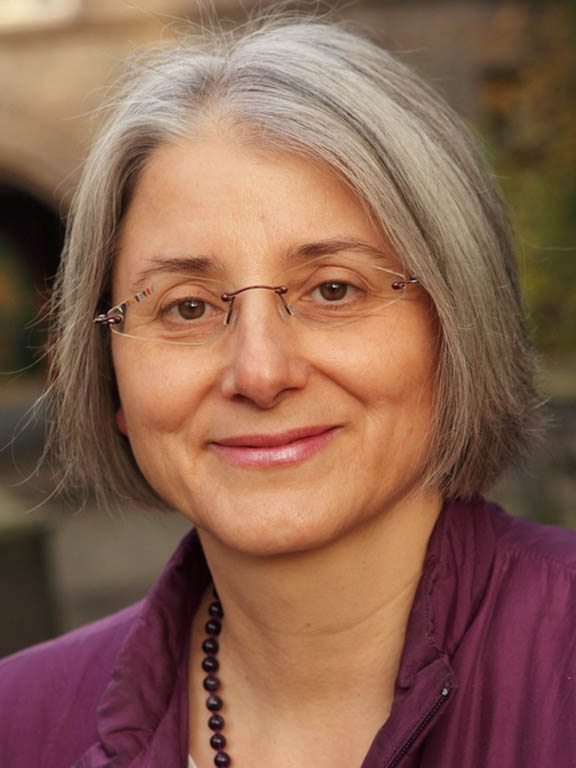
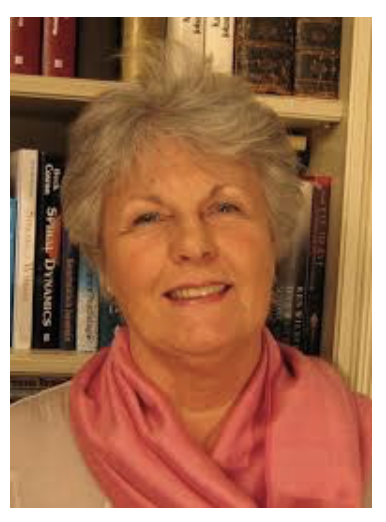
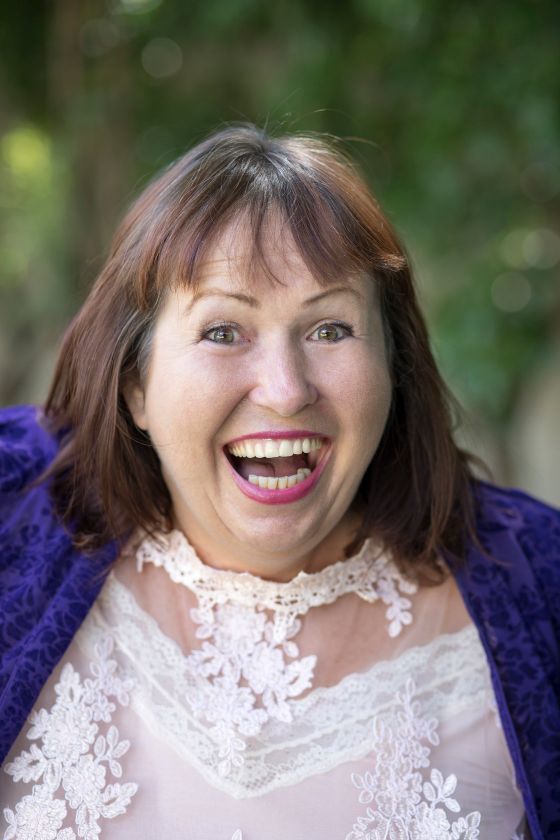
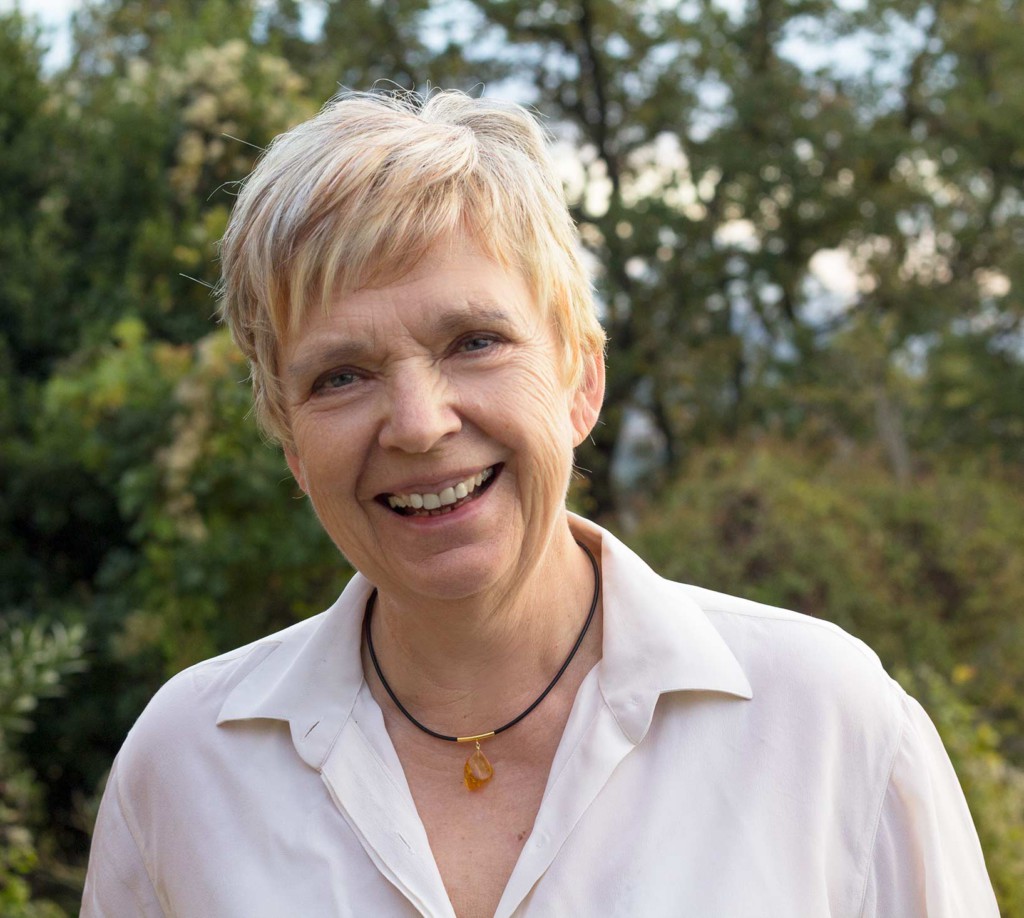
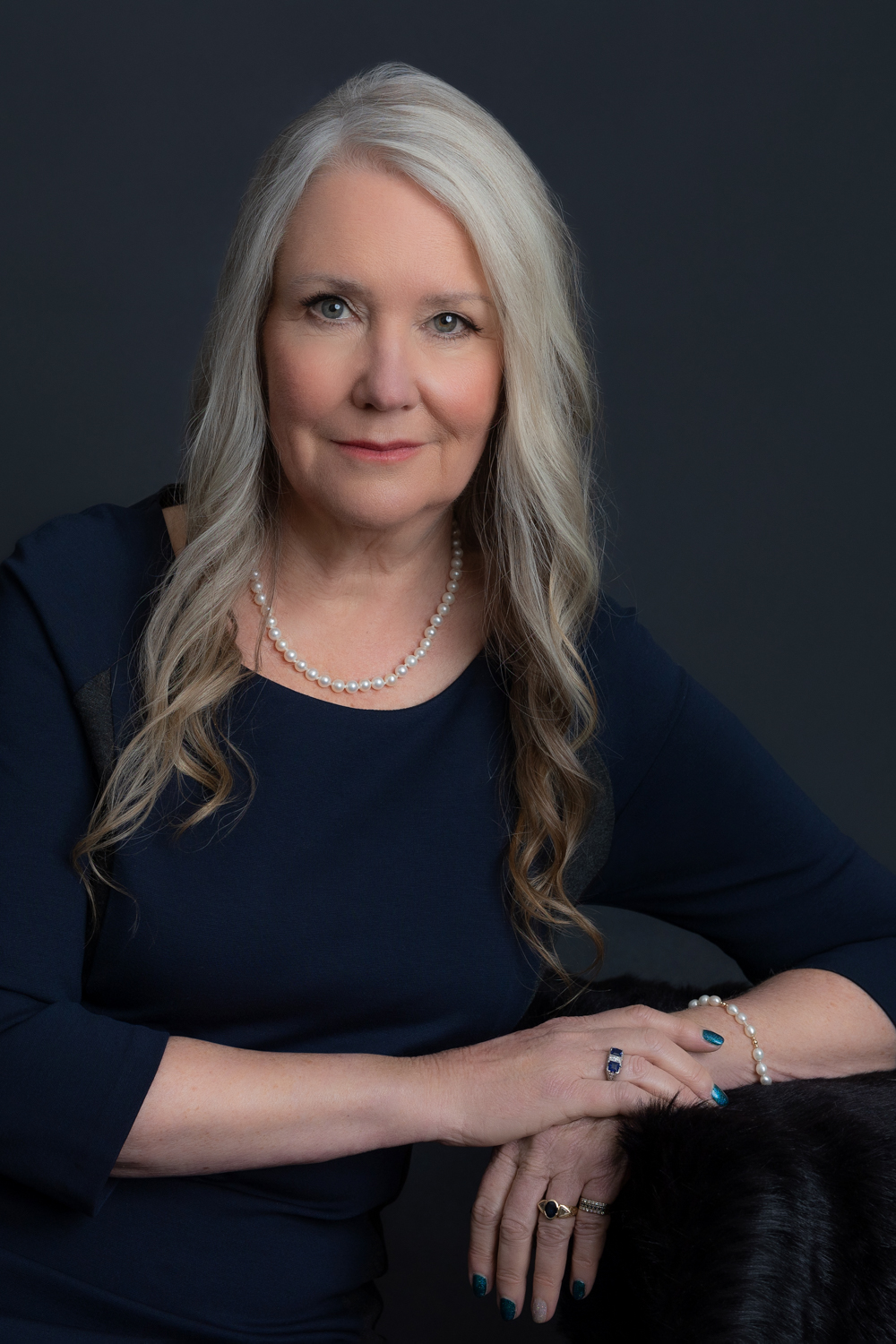
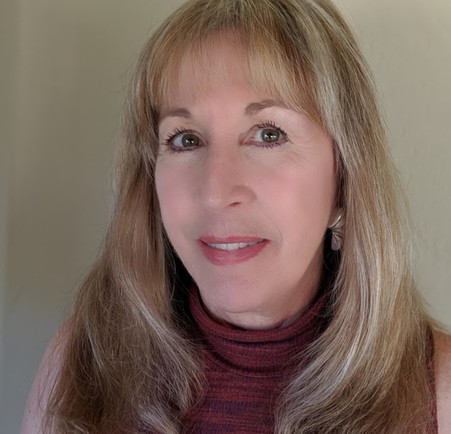
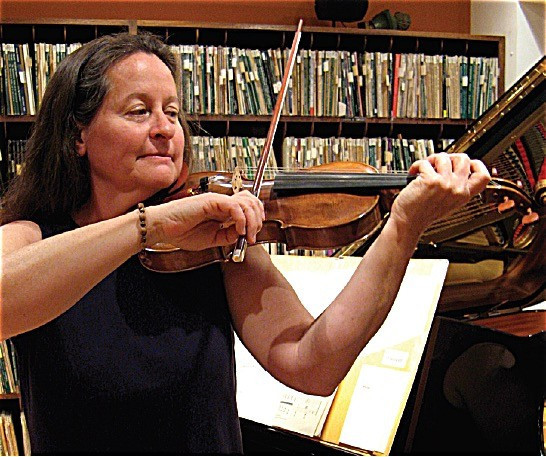

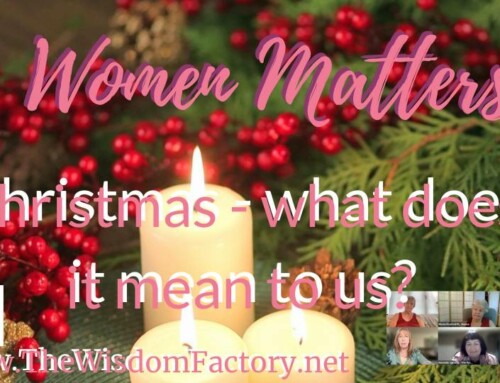
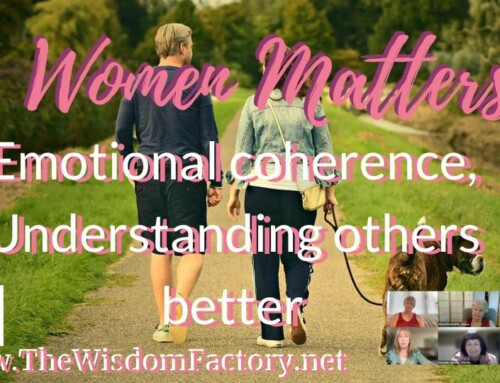
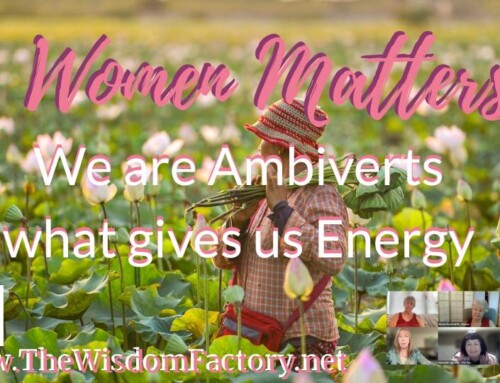

Leave A Comment